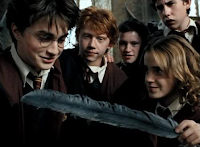That's what happened this morning with my second-block Algebra 1 class.
So during third block, I went to the library and started fishing in the MTBoS Search Engine. I wanted a card sort activity or an idea for one.
It didn't take long to find out that Dane Ehlert and Geoff Krall had already come to the same conclusion independently — and that they had even done some of the work for me!
Everybody's kids are at different levels when you slam into a new topic. So it's great to be able to find the structure of an activity that you can easily adapt to fit your own students' actual depth of knowledge.
This is why, even though I love a lot of the Shell Centre activities, I often find that MTBoS adaptations (or my own) are best for the reality of my classroom. They've given us some fantastic models to use in our actual teaching and learning.
POSTER HEADINGS PDF
http://msmathwiki.pbworks.com/w/file/fetch/106507989/Which%20Method%20and%20Why%20Headings.pdf
QUADRATIC EQUATION CARDS PDF
http://msmathwiki.pbworks.com/w/file/fetch/106507992/Quadratics%20method%20matching%20cards.pdf



